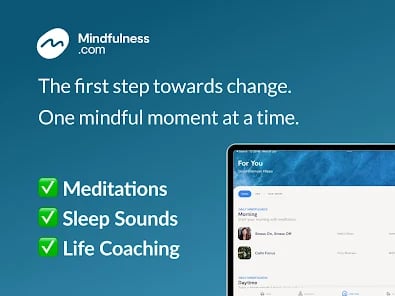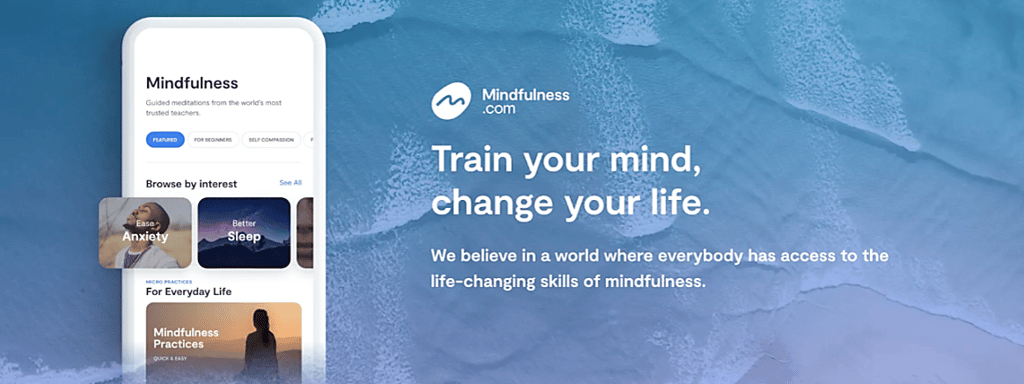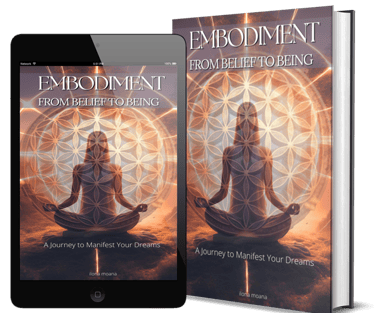
Understanding Anxiety and Its Impacts: How Meditation Can Help
Discover the impacts of anxiety on mental and physical health and learn how meditation can help manage symptoms effectively. Explore techniques and benefits to improve overall well-being.
MEDITATIONMINDFULNESSANXIETY


Understanding Anxiety and Its Impacts
Anxiety is a natural response to stress, characterized by feelings of apprehension, tension, or unease. While experiencing occasional anxiety is a normal part of life, persistent and excessive anxiety may indicate the presence of an anxiety disorder.
Symptoms of anxiety can manifest in various ways, both physiologically and psychologically, impacting the overall well-being of individuals.
Common physiological symptoms include increased heart rate, rapid breathing, sweating, trembling, and gastrointestinal issues. These body responses are part of the fight-or-flight mechanism, which prepares the body to face perceived threats.
Over time, chronic anxiety can lead to more severe health issues such as hypertension, heart disease, and weakened immune function.
Psychologically, anxiety can cause constant worry, restlessness, difficulty concentrating, and irritability. These symptoms can significantly impair daily activities and reduce the quality of life.
Additionally, anxiety often coexists with other mental health disorders, such as depression, creating a compounded negative effect on mental health.
It is essential to distinguish between general anxiety and clinical anxiety disorders. General anxiety is typically short-term and related to specific situations or stressors, resolving once the trigger has passed. In contrast, clinical anxiety disorders are persistent, often lasting six months or more, and can occur without an identifiable cause.
Types of clinical anxiety disorders include generalized anxiety disorder (GAD), panic disorder, social anxiety disorder, and specific phobias.
The impact of anxiety on both the mind and body underscores the need for effective management strategies. One such strategy is meditation, which offers numerous benefits for calming the mind and body.
By understanding the wide-ranging effects of anxiety, individuals can better appreciate the role of meditation in alleviating these symptoms and improving overall mental health.
The Science Behind Meditation for Anxiety
Extensive scientific research supports the efficacy of meditation as a means to alleviate anxiety. Through neuroimaging studies and clinical trials, it has been observed that meditation induces significant changes in brain activity, particularly in areas related to stress and relaxation.
For example, a study conducted by scientists at Harvard University demonstrated that regular meditation practice leads to increased activity in the prefrontal cortex—an area of the brain responsible for higher-order functioning, including focus and emotional regulation.
Meditation primarily influences the amygdala, a region associated with the body’s fight or flight response. Research published in the journal "Psychiatry Research: Neuroimaging" found that an eight-week mindfulness-based stress reduction (MBSR) program resulted in noticeable changes in this part of the brain. Participants exhibited reduced gray matter density in the amygdala, correlating with decreased stress and anxiety levels.
These changes indicate how meditation not only helps in managing acute episodes of anxiety but also contributes to long-term brain health and emotional well-being.
Furthermore, meditation impacts the brain's default mode network (DMN), which is active when the mind is at rest and often associated with self-referential thoughts and mind-wandering. A hyperactive DMN has been linked to anxiety and depression. A study from Yale University found that meditation helps to quiet this network, fostering a state of mental calmness and reducing tendencies towards negative rumination—markedly beneficial for individuals struggling with anxiety disorders.
Moreover, clinical trials have underscored the tangible benefits of meditation, revealing up to a 39% reduction in anxiety symptoms with consistent practice.
For instance, a meta-analysis published in JAMA Internal Medicine reviewed over 18,000 cases and confirmed the significant positive effects of meditation programs in reducing anxiety, stress, and depression. These findings underscore the importance of incorporating regular meditation to achieve and maintain low anxiety levels, emphasizing its role in both immediate stress relief and long-term mental health maintenance.
Basic Meditation Techniques to Reduce Anxiety
Meditation has long been revered as an effective method to manage and reduce anxiety. Whether you are a novice or someone with a bit of experience, the foundational techniques we're about to discuss can be seamlessly integrated into your daily routine, offering a sanctuary of calm amidst your busy life.
Mindful Breathing
The first technique, mindful breathing, serves as a cornerstone of meditation practices aimed at alleviating anxiety.
Find a comfortable place to sit or lie down.
Close your eyes and start by taking a deep breath in through your nose, allowing your lungs to fill completely.
Hold the breath for a moment before exhaling slowly through your mouth.
Focus your attention solely on the rhythm of your breath.
If your mind starts to wander, gently bring it back to your breathing.
Practice this exercise for five to ten minutes, gradually increasing the duration as you become more comfortable.
Body Scan Meditation
Another effective meditation technique is the body scan. This method brings awareness to different parts of your body, helping to release tension. Begin by lying down comfortably. Close your eyes and start by focusing on your toes, mentally noting any sensations you feel. Gradually move your focus up through your body: feet, legs, abdomen, chest, arms, hands, neck, and finally your head. Spend a few moments on each part, consciously releasing any tension you identify by taking deep, calming breaths. This practice not only relaxes your body but also helps to center your mind.
Grounding Exercises
Grounding exercises aim to connect you with the present moment by using sensory inputs. One effective exercise involves focusing on your surroundings.
Sit comfortably and take a few deep breaths.
Now, look around and identify five things you can see, four things you can touch, three things you can hear, two things you can smell, and one thing you can taste.
This exercise pulls you out of anxious thoughts and places you firmly in the presence, offering immediate relief.
By incorporating these basic meditation techniques into your routine, you can create a personalized toolkit to combat anxiety. Remember that consistency is key, and even a few minutes daily can make a significant difference in your mental well-being.
Guided Meditations for Anxiety Relief
Guided meditations have emerged as a valuable tool in managing anxiety, offering a structured and supportive approach for individuals seeking relief from anxious thoughts and feelings.
By integrating verbal prompts and calming background music, guided meditations help focus the mind, making it easier to stay present and centered.
For those struggling to maintain a self-directed meditation practice, guided sessions can be particularly beneficial, providing clear directions and a soothing presence that encourages relaxation.
Essentially, guided meditations involve following along as a guide—often a trained practitioner—leads you through a series of mental exercises, which may include breathing techniques, body scans, and visualizations. These elements work together to induce a state of calm and mindfulness, redirecting attention away from stressors and into the present moment. This guided approach creates a supportive environment, especially for those new to meditation or those whose anxiety may make it challenging to meditate independently.
Several apps and online platforms specialize in providing guided meditations tailored to anxiety relief. For instance, apps like Headspace and Calm offer a wide range of guided sessions that focus explicitly on easing anxiety.
These platforms often feature contributions from qualified meditation teachers and mental health experts, ensuring that the content is both effective and accessible.
Additionally, YouTube channels run by renowned meditation practitioners such as Tara Brach and Jason Stephenson provide a wealth of guided meditations, ranging from short five-minute sessions to more extended practices, all aimed at fostering mental tranquility.
Ultimately, incorporating guided meditations into your daily routine can be a powerful strategy for managing anxiety. With numerous resources available at one's fingertips, it's easier than ever to find the right guided meditation practice that aligns with your individual needs and preferences, paving the way for a more serene and balanced life.
Incorporating Meditation into Daily Life
Integrating meditation into your daily routine can provide profound benefits for managing anxiety. The key is to remain consistent and make meditation an integral part of your lifestyle.
Consistency magnifies the calming effects of meditation, making it essential to allocate a fixed time each day. Early mornings or late evenings are often ideal as these times are typically quiet and conducive to reflective practices.
Choosing the optimal location for meditation is equally important. Select a spot that is free from distractions, clutter, and noise. This space should evoke a sense of tranquility and comfort, becoming your sanctuary for mindfulness.
Personalize this area to suit your preferences; include soft lighting, calming scents, or comfortable seating to enhance the ambiance. Creating a meditation-friendly environment can significantly improve the quality of your practice.
Maintaining regular practice can be challenging amidst a busy lifestyle. One common hurdle is the perceived lack of time. To overcome this, start with short sessions of five to ten minutes and gradually increase the duration. Integrate meditation into your existing schedule by linking it to a current habit, such as right after brushing your teeth or during a lunch break. This ensures it becomes a habitual part of your day.
Distractions can also impede the meditation process. It is crucial to acknowledge the distraction and gently redirect your focus to your breath or mantra. Enhancing concentration might take practice, but over time, it becomes more manageable.
Maintaining motivation for meditation can be another challenge, especially when the immediate benefits are not always apparent. Setting realistic goals and keeping a meditation journal to track your progress can help. Additionally, joining a meditation group or using guided meditation apps can provide external support and encouragement.
By thoughtfully integrating these practical tips, you can establish a routine that seamlessly incorporates meditation, aiding in the mitigation of anxiety and fostering a calmer, more centered existence.
Advanced Techniques and Long-term Benefits
For individuals who have established a consistent meditation routine, advancing to more sophisticated techniques can profoundly enhance their anxiety management.
One such advanced practice is loving-kindness meditation. This technique involves directing feelings of love and compassion towards oneself and others, which can significantly improve interpersonal relationships and foster a sense of connectedness. The deliberate focus on positive emotions can counterbalance negative thought patterns contributing to anxiety.
Another powerful method is visualization meditation. This approach requires the practitioner to picture serene and peaceful scenes or scenarios within their mind. By immersing oneself in these mental images, the brain can simulate the external environment, inducing a state of calm and relaxation. Visualization can also be used to mentally rehearse overcoming anxieties, thereby increasing confidence and reducing the stress associated with anxiety-provoking situations.
Mantra meditation is equally effective for those seeking advanced techniques. In this practice, a specific word, phrase, or sound, known as a mantra, is repeated continuously to focus the mind and block distractions. The rhythmic repetition can induce a deep meditative state, promoting tranquility and concentration. This technique is particularly beneficial in silencing the internal chatter that often exacerbates anxiety.
Sustaining a long-term meditation practice yields a plethora of mental and physical health benefits. One significant advantage is improved emotional regulation. Regular meditation helps the brain develop a greater capacity for managing emotional reactions, leading to a more balanced, less reactive emotional state. This can contribute to a reduction in anxiety-inducing stress responses.
Increased resilience is another notable benefit. Through consistent meditation, individuals can cultivate a more robust mental framework, enabling them to better navigate life's challenges with steadiness and composure. Additionally, long-term meditation is linked to overall well-being, evidenced by improvements in aspects such as sleep quality, cognitive function, and physical health.
Ultimately, the long-term commitment to meditation not only alleviates anxiety but also promotes a healthier, more harmonious life experience, making it a valuable component of holistic health care.
Copyright © 2025 Djedi Living. All rights reserved.
Disclaimer
This site is not intended to provide and does not constitute medical, legal, or other professional advice. The content on DjediLiving.com is designed to support, not replace, medical or psychiatric treatment. Please seek professional care if you believe you may have a condition.
DjediLiving.com may earn affiliate income from qualifying purchases.
Before using the site, please read our












